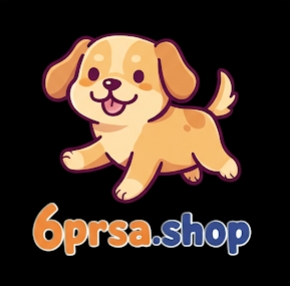The sheer number of dog food options available can be overwhelming. This article helps navigate the choices, focusing on Kirkland dog food. We’ll look at the pros and cons, compare it to other brands, and offer tips on selecting the right formula for your dog.
Kirkland Signature dog food, manufactured by Diamond Pet Foods for Costco, is a popular choice due to its affordability and availability. However, price isn’t everything. Let’s delve into what the reviews really say.
Ingredient Quality and Sourcing
A common theme in reviews is the discussion of ingredient quality. Many appreciate that Kirkland formulas often include real meat as a primary ingredient. However, some raise concerns about the specific sourcing of these ingredients. While Diamond Pet Foods has improved their sourcing over the years, transparency remains a point of contention for some pet owners.
Nutritional Adequacy and Formulation
Most Kirkland dog food formulas meet the AAFCO (Association of American Feed Control Officials) guidelines for “complete and balanced” nutrition. This means they contain the essential nutrients dogs need. However, remember that AAFCO guidelines are minimum standards. What’s nutritionally adequate for one dog might not be optimal for another. Consider your dog’s life stage, breed, and any specific health concerns.
Digestibility and Allergies
Some dogs thrive on Kirkland, while others experience digestive upset. Reviews often mention issues like gas, loose stools, or skin problems, which can indicate sensitivities to certain ingredients. Corn, wheat, and soy are common allergens often found in less expensive dog foods, and some Kirkland formulas do contain them. If your dog has known allergies, carefully examine the ingredient list.
Recall History
Diamond Pet Foods has been subject to recalls in the past. While not all recalls directly involved Kirkland products, the association raises concerns for some consumers. It’s always a good idea to stay informed about potential recalls, regardless of the brand you choose. You can check the FDA website for pet food recall information: https://www.fda.gov/animal-veterinary/safety-health/recalls-withdrawals
How does Kirkland stack up against other dog food options?
Cost-Effectiveness
This is where Kirkland shines. It offers a significantly lower price point compared to premium brands like Blue Buffalo, Orijen, or Royal Canin. However, a lower price doesn’t automatically mean lower quality. It means you need to be a more discerning shopper, carefully comparing ingredient lists and nutritional profiles.
Nutritional Comparison Table
Here’s a simple comparison of the nutritional content of a Kirkland Signature Adult Chicken, Rice & Vegetable Formula compared to a similar offering from a premium brand, Blue Buffalo Life Protection Formula Adult Chicken & Brown Rice Recipe (values are approximate and can vary slightly depending on specific formula changes):
| Nutrient | Kirkland Signature Adult | Blue Buffalo Life Protection |
|---|---|---|
| Protein (min) | 26% | 24% |
| Fat (min) | 16% | 14% |
| Fiber (max) | 4% | 6% |
| Moisture (max) | 10% | 10% |
Note: This is a general comparison. Always consult the specific product label for accurate information.
Ingredients Matter: A Closer Look
While macronutrient percentages (protein, fat, fiber) are important, don’t overlook the ingredient list. Look for recognizable ingredients like real meat, whole grains (if tolerated), and vegetables. Pay attention to the order of ingredients – those listed first are present in the largest quantities.
I’ve been around dogs my entire life, and I’ve tried numerous dog food brands, including Kirkland. Here’s my perspective, based on firsthand experience:
The “Smell Test” is Real
Seriously! Before diving into ingredient lists, give the food a sniff. High-quality dog food generally has a pleasant, meaty smell. If it smells overly processed or rancid, that’s a red flag. My German Shepherd mix did pretty well on the Kirkland Chicken and Vegetable formula but wouldn’t touch the lamb version, which many people liked, which goes to show dogs can be picky.
Trial and Error is Often Necessary
Every dog is different. What works for one dog might not work for another. Be prepared to experiment and monitor your dog’s response carefully. Look for signs like healthy coat, good energy levels, and well-formed stools.
Consider Rotational Feeding
I’m a big believer in rotational feeding – switching between different food formulas (within the same brand or even across brands) every few months. This can help prevent sensitivities and provide a broader range of nutrients. However, introduce new foods gradually to avoid digestive upset.
The Importance of Supplements
Even with a good-quality dog food, supplements can be beneficial, especially for senior dogs or those with specific health conditions. Consider adding fish oil for omega-3 fatty acids, glucosamine and chondroitin for joint support, or probiotics for gut health. Always consult with your veterinarian before adding any supplements.
Ultimately, the best dog food is the one that keeps your dog healthy and happy. Consider Kirkland as a viable option, but do your research. Read reviews, compare ingredient lists, and monitor your dog’s response. Don’t be afraid to switch if you’re not seeing the results you want.
Our goal is to change how pet foods are made and marketed … and that starts with education. Our Advisory Board includes a PhD veterinarian who taught nutrition to vet students, a PhD food scientist and formulator, a PhD veterinarian and herbalist, and a veterinarian who’s a nutrition expert and advisor to AAFCO, the organization that sets standards for pet food production. We’ve brought the best and brightest minds together to help investigate the foods you feed your furry family member.

